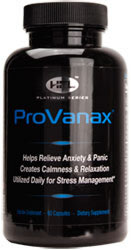 The medicinal use of St Johns wort for depression treatment dates back to the time of the ancient Greeks. In Germany today, St Johns wort is a front line treatment for depression, sleep, and anxiety disorders. St Johns wort was also found to be effective in improving the moods of people diagnosed with Seasonal Affective Disorder, or SAD, a depression variant that afflicts individuals during winter due to the insufficiency of sunlight. It continues to be studied extensively by the German government’s scientific advisory panel as an alternative to prescribed antidepressants. Two compounds – hypericin and hyperforin – found in St Johns wort are said to be responsible for decreasing the effects of mild to moderate cases of depression.
The medicinal use of St Johns wort for depression treatment dates back to the time of the ancient Greeks. In Germany today, St Johns wort is a front line treatment for depression, sleep, and anxiety disorders. St Johns wort was also found to be effective in improving the moods of people diagnosed with Seasonal Affective Disorder, or SAD, a depression variant that afflicts individuals during winter due to the insufficiency of sunlight. It continues to be studied extensively by the German government’s scientific advisory panel as an alternative to prescribed antidepressants. Two compounds – hypericin and hyperforin – found in St Johns wort are said to be responsible for decreasing the effects of mild to moderate cases of depression.
This perennial herb was said to have bloomed for the very first time on June 24, long held as St John the Baptist’s birthday, hence the name St John’s wort (the meaning of “wort” in Old English is “plant”).
How Does St John’s Wort Work?
There is much clinical evidence pointing to the effectiveness of this herb in treating various conditions. What is less well known however, is HOW it works.
There is some evidence that St Johns wort works in a similar way to SSRIs (selective serotonin reuptake inhibitors) such as fluoxetine a.k.a. Prozac, sertraline, and citalopram. These drugs are often prescribed by doctors in the treatment of anxiety and depression, but they may be replaced eventually by St Johns wort. Like SSRIs, St Johns wort is able to increase the availability of the brain’s neurotransmitters serotonin, norepinephrine, and dopamine which help improve moods and emotions.
In separate studies conducted in both Europe and the U.S., St Johns wort was found to be just as effective in short term therapy as tricyclic antidepressants for depression cases that are mild to moderate. The studies also indicated fewer incidences of side effects than most anti-depressants, which is one reason why St Johns wort is becoming increasingly popular.
A treatment using St Johns Wort for anxiety is also currently being studied mainly because test subjects who are taking it report improvements in their condition.
A Possible Treatment for Other Depression-Related Conditions
St Johns Wort benefits include:
- PMS: According to early research, St John’s wort may be helpful in alleviating irritability, breast tenderness, abdominal cramps, and food cravings that accompany Pre Menstural Syndrome or PMS
- Inflammation and wound healing: it also has anti-inflammatory properties that help heal wounds and burns
- Menopause: A couple of studies indicated that a combination of St Johns wort and black cohosh can help significantly in the improvement of women’s anxiety during menopause.
Other St Johns Wort Uses
Other conditions that may potentially benefit from the use of St Johns wort include emotional disorders such as mood swings brought about by menopause, obsessive-compulsive disorder or OCD, premenstrual syndrome, and anxiety. Some studies indicated the possible capability of St Johns wort to reduce alcohol craving and lessen nicotine withdrawal symptoms.
Investigations on the possible antiviral properties of St Johns wort are being conducted for what could be developed into treatments for hepatitis C, AIDS, HIV, and other virus-related diseases. This is based on the theory that hypericin may have adhesive capability on viral surfaces to prevent viruses from binding themselves onto host cells or may inhibit the production and release of viral cells.
The Universidad Complutense de Madrid in Spain published a study suggesting the presence of active anti-oxidants in St Johns wort that could reduce the extent of neuronal degeneration due to Parkinson’s disease.
St Johns wort is renowned as a salve for bruises, wounds, abrasions, scabies, burns, and insect bites as well as for muscle pain, hypothyroidism, and other inflammatory, skin, and infectious diseases.
The antibacterial properties found in St Johns wort may also help prevent inflammation associated with skin irritation such as eczema when applied to the skin topically.
Finally, practitioners of alternative medicine recommend the use of St John’s wort for earaches that result from ear infections, medically known as otitis media. A test study involving a hundred children as subjects who were suffering from earaches were given eardrops made from St John’s wort combined with mullein, calendula, and garlic and yielded results of efficacy for St Johns wort, albeit the inclusion of other herbs could also be contributory.
This herb is available as cream, liquid, capsules, and oil from herbal stores. Dried St John’s wort is taken as tea. The standard dose is that used in clinical studies of 300 mg taken three times a day.
Are There Any Side Effects or Precautions?
As with all medications, both pharmacological or herbal in nature, consulting with your doctor is always the first thing that you need to do before taking any of them. While St Johns wort is usually used as a depression treatment, it should not be used to treat severe cases of depression such as having suicidal thoughts, harming yourself, and harming others.
Although relatively minor, some side effects of taking St John’s wort have been reported such as constipation, nausea, dryness of the mouth, dizziness, and confusion. If you experience any of these side effects, however, you should see your doctor immediately to find out whether or not you should stop taking St Johns wort.
You can develop photo dermatitis or over sensitivity to sunlight, acquire skin rashes and hives, and experience fatigue and restlessness as side effects of taking St Johns wort. Pregnant women are strongly advised against taking this supplement as it could affect the function of uterine muscles.
If you’re already taking other medications, you need to be aware of possible St Johns Wort interactions. This herb may produce adverse results if you use it alongside antihistamines, statins, cough medicine, calcium channel blockers, contraceptives, and antifungal drugs.
Should You Try St Johns Wort For Depression or Anxiety?
There are many conclusive studies showing this herb is very effective in the treatment of depression, as well as other depression related conditions like anxiety and insomnia. It is generally most effective in combination with other herbs and nutrients which target all the major symptoms of depression and anxiety. If you consult your health care practitioner beforehand to get the right dose for you, and start taking it in small doses then gradually build up to an optimal dose for your condition, you may find that St Johns wort gets you out of that funk and into a more positive frame of mind.
Looking for a Natural Remedy for Depression and Anxiety?
Here’s what one user said about ProVanax: “Having suffered from depression most of my life, I’ve been treated with many anti depressant and anxiety medications. I was literally a walking pharmacy. From weight gain and the numerous and dangerous side effects, I sought out an alternative way to eradicate my depression. I had done a lot of research and some how, I stumbled upon your product … Long story short, everything in my life has improved. No more depression. Concentration has improved. No more anxiety and I have been a consistent user of ProVanax from day one and can’t imagine my life without! …. ” If you want to try an all natural supplement for depression and anxiety, ProVanax might by what you’re looking for. Click here to learn more about the ProVanax and how it can help you. |
AFFILIATE DISCLOSURE
This website contains affiliate links, which means we may receive a percentage of any product or service you purchase using the links in the articles or advertisements. You will pay the same price for all products and services, and your purchase helps support our ongoing research and work. Thanks for your support!
